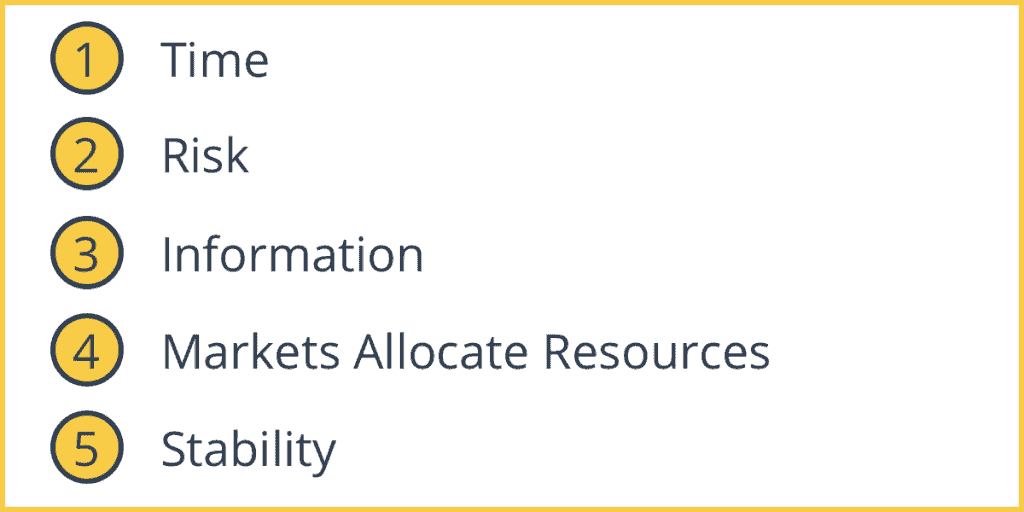Money is anything that is generally accepted as payment. Ex: cash or checking account. A double coincidence of wants is necessary to facilitate the trade of goods and services, i.e., like in the barter system; a trade would only happen if you wanted what I had and you had what I wanted. Banks are financial institutions that accept deposits and make loans. Banks create forms of money that allow for economic transactions. There are five key principles of money and banking.
Five Principles of Money And Banking

1. Time
Time has value and inflation adversely affects value. It affects decisions on immediate or later consumption, investment, and compound interest earnings. Lenders will demand compensation for parting with their money and getting it back slowly over time. Borrowers are will to give this compensation in returns for getting the needed funds today.
2. Risk
Risk (potential losses) is unavoidable and requires compensation. Usually higher risk opportunities have higher interest rates (i.e., higher reward). People are will to pay to avoid risk and that those who assume certain risks will demand compensation
3. Information
Information is the basis for decisions. Problems can arise when there is asymmetric information. Asymmetric information occurs when one individual may have more knowledge than the other in a transaction, which makes decision making inefficient.
4. Markets Allocate Resources
Primary factors of production are scarce resources, and we have unlimited wants, so the market allocates these scarce resources by setting a price buyers are willing and able to pay. (Connect borrowers to lenders). A market sets a price that rations scarce resources to those willing and able to pay. Similarly, in the financial sector markets will determine what investments get funded.
5. Stability
Economic or market stability improves welfare in the economy. Central banks work to keep markets and the financial system stable, which is better for all individuals.

